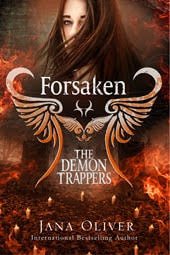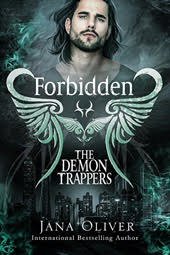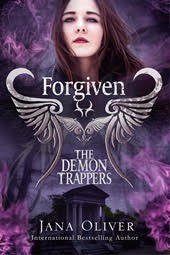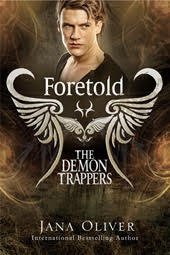Top 5 Writing Tips from Urban Fantasy Author, Jana Oliver
/For those of you at the start of your book writing journey and want to focus on the genre of Urban Fantasy, I spoke to international bestselling author, Jana Oliver (one of my favourite UF authors!) and asked her to be our guest blogger to impart some of her wise wisdom to help you with your writing.
***
I’ve been an author over two decades now and no surprise, I’ve learned a few things along the way. Here’s five tips to help you on your own writer journey.
Tip #1:
Nobody starts out being an awesome writer. Some may claim to have descended on a heavenly cloud with totally incredible storytelling skills—Please recall that we write fiction for a living.
A few of us appear to be better writers when we first start out, but down the line that “better” proves to be inadequate when we acknowledge our shortcomings. Because we all have them. For the rare few that say, “Every word I write is perfect, why would I need an editor?” I got nothing. I had someone say this to me at a convention, and I made a mental note not to read his books. I knew what I’d find.
We each have our strengths. Mine is complex plotting and dialog and I had those down solid from Day 1. Point-of-view? No way. I “head hopped” like a frog on meth in my first three books. I had to learn how to execute POV properly. Now it’s second nature so I wince whenever I see those earlier works.
Olympic athletes spend years perfecting their particular sport so why shouldn’t a writer’s techniques take time to mature? For some reason the public assumes that just because they can type on a keyboard, they can write a book, that it takes little or no skill. That is totally wrong. Crafting a story takes expertise, and you get that by writing a lot of words. Some of them might even be good.
Tip #2:
There is no right way to write a book. I have author buds who plot out every scene and know precisely what each character is doing throughout the story. I’m of the “let’s wing it and see what happens” crew. If I plot out a book before the actual writing part, it seems to drain some of the energy out of the story, at least for me.
For those who do plot their books, that’s because they have to, or they can’t see the story. One upside to that approach is that you’re less likely to have a lot of rewrites (I usually do 4-5 drafts). Or maybe not because absolutely everything in this business is individual. Find what works for you. And don’t be surprised if some stories require a different approach than the one you usually employ. Certain stories seem to have a will of their own.
Once I have a first draft, I get all organized. I lay out each scene, with day and time, location and POV character, on an Excel spreadsheet, and I color code the POV (I write in 3rd person) so I can tell if I’m giving one character more “page time” than another. Also, if you’re writing complex stories a spreadsheet helps keep track of which character is where, and doing what, at any given moment.
I have also learned that some stories are not ready to be told. My skill level might not be strong enough, or the story hasn’t formed enough in my head to begin the process. I’ve learned to wait them out until they’re hammering at me to be written, because then the magic happens. If I rush them, the results always suck.
Tip #3:
Not everything you write (or research) needs to be in the book. I spent an inordinate amount of time researching the Fall of Lucifer for my Demon Trappers series, reading various religions’ texts on the subject. 99% of that did not go into any of my books. To understand that pivotal character I needed to do my homework, but spending a page and half regurgitating why he fell from heaven wasn’t why a reader bought my books.
I refer to this background research as “author backstory” where I acquire the needed information to ensure the story works. It’s also brain fodder for new story ideas.
Tip #4:
“the Rules of your world need to be consistent.”
My books are in a number of genres, but I honestly feel that writing Urban Fantasy requires some special skills. For me there is one guiding principle when it comes to UF: the Rules of your world need to be consistent. If you state that only males can be mages, and then in a later story change that up, show why that change happened. And then show how that change impacted your characters, and their society. Because everything that happens in UF seems to have a ripple effect, for good or ill. Use that to your advantage.
Which means the best way to keep all those Rules straight is some form of recordkeeping. Some call this a story bible. No matter how you do it (electronically or handwritten), if you have mages only be males make note of that. And then if you do change that up, document in which book/chapter that change occurred, and why. Copy descriptions of locations and people onto their own pages because you’ll likely be revisiting them in future books and don’t want to spend the time hunting through however many volumes to find those descriptions. If the characters have specific traits, phobias, food allergies, dislikes, etc., make note of those as well.
I found a few things that were forgotten, or somehow changed between my first and fourth book in the Demon Trappers series. Now that I’m re-publishing them under my own imprint, I’ve fixed those. It’s normal that when you get further into a series some of the finer points are forgotten. One last thing on this subject—if you do this documentation electronically, please keep a backup separate of your computer. If you don’t, and it goes POOF, you’ll really, really regret it.
Tip #5:
If you’re building your urban fantasy tale in a contemporary city, in a contemporary time period, do your homework. Usually I visit the actual location, take pictures and access Google Maps (and Google street view) like an addict. I will use the photos for reference when I’m writing a scene as it helps me build in more detail.
Before Google Maps I would buy city maps, so I knew if my character was on X or Y street. What buildings or other features the character might see from that location, even if that detail never made it into the actual story. Some might consider this overkill, but it helps me keep grounded in the world I’ve created. Of course, not every writer can take time off from their day job, or afford this kind of research trip, so use the tools you have at your fingertips. And don’t forget your local librarian, who will often be able to find materials you have no idea existed because they have their own special brand of magic.
“readers notice those tiny details, and if they’re wrong it’ll pull them out of the book.”
Why go to all this work? Because readers notice those tiny details, and if they’re wrong it’ll pull them out of the book. After that happens a few times, especially if the reader is a native to the city in your story, they’re gone. For those who know the location, they’ll nod, smile, and continue reading.
And finally, one bonus tip:
Urban Fantasy is its own beast. It exists not only to tell a riveting tale, but to make us think. These tales may examine societal standards that might mirror our own, helping us realize that those standards are either unrealistic, or unjust. The finest UF tales are the ones that take you on that inner journey, pulling you into the kind of story that sticks with you years after you’ve read them. The kind you read over and over.
A skillful writer draws you deep into their world, making it so vibrant it feels real. You fight alongside the hero and heroine as they face impossible odds, battling monsters both magical and human.
That’s Urban Fantasy at its best. Being able to write a compelling story, one that keeps your readers up way past their bedtime, is a gift. As Stan Lee said in Spiderman, “With great power comes great responsibility.” Please use it wisely.
Jana Oliver
***
Many thanks Jana for taking the time to write this. We greatly appreciate it!
If you would like to see more of Jana’s books, visit her at JanaOliver.com
All photos featured in this article are courtesy of Jana Oliver.
Where would you like to go next?





